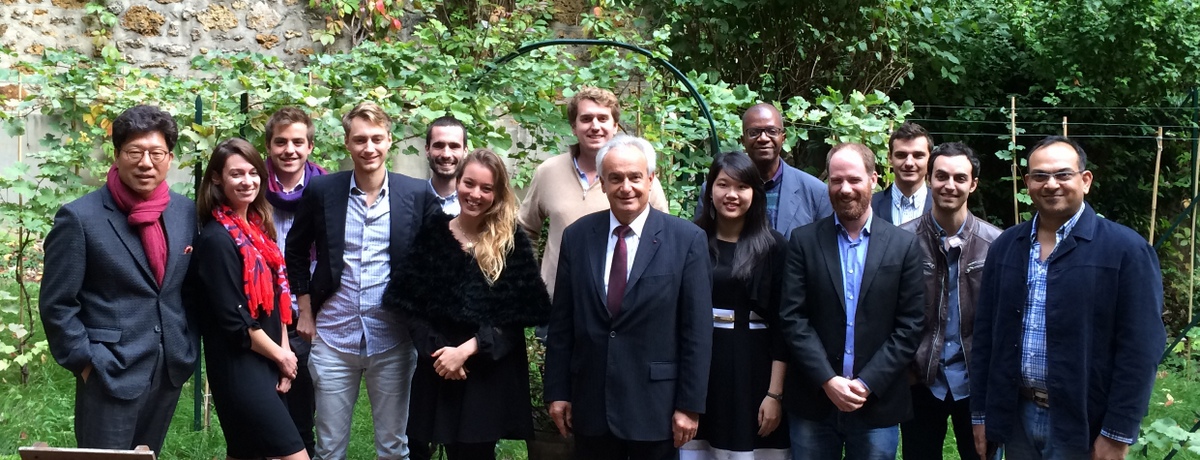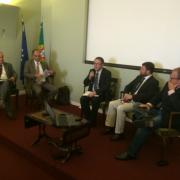
The work that brought together international marketing and communication experts alongside producers and wineries from Porto was followed by tasting sessions.
A symposium on the role of Port wine and Douro wines in the local economy extended the discussions to 11 September.
On this occasion, the OIV Director General, Jean-Marie Aurand, spoke up about the place of science and innovation in the wine sector and the role of the OIV in this context.
With nearly 24,000 producers, the Porto region makes the most renowned liqueur wines in the word, shaping the countryside with the characteristic terraces that were recognised on the World Heritage of Humanity list by UNESCO in 2001 as evolving, living cultural landscapes.
The Douro region is spread across 250,000 ha of schist soils, with 44,000 ha of vines producing the Port and Douro designations of origin.
Douro is the oldest delimited and regulated wine region in the world, dating back to 1756. Port wine may be tasted in around 120 countries on all 5 continents. It represents a significant part of the Portuguese vitivinicultural economy.
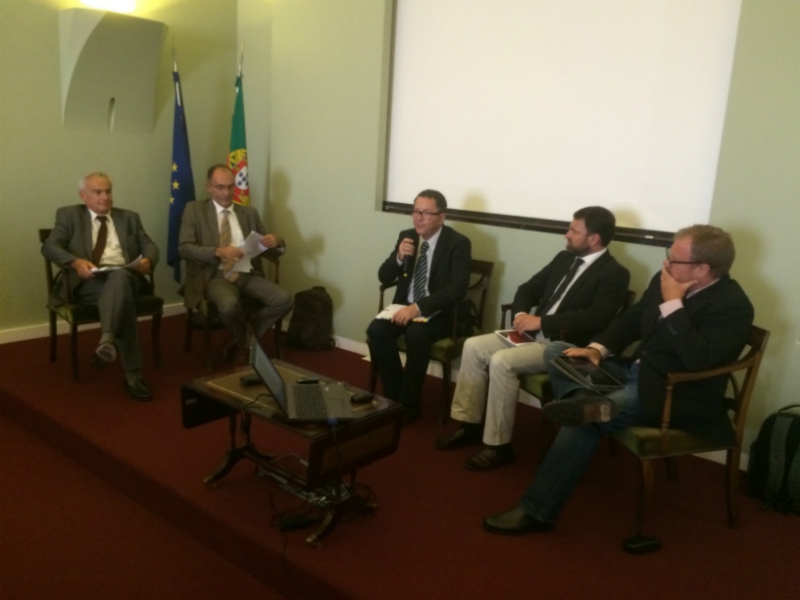
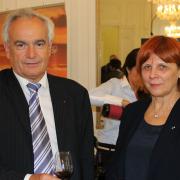
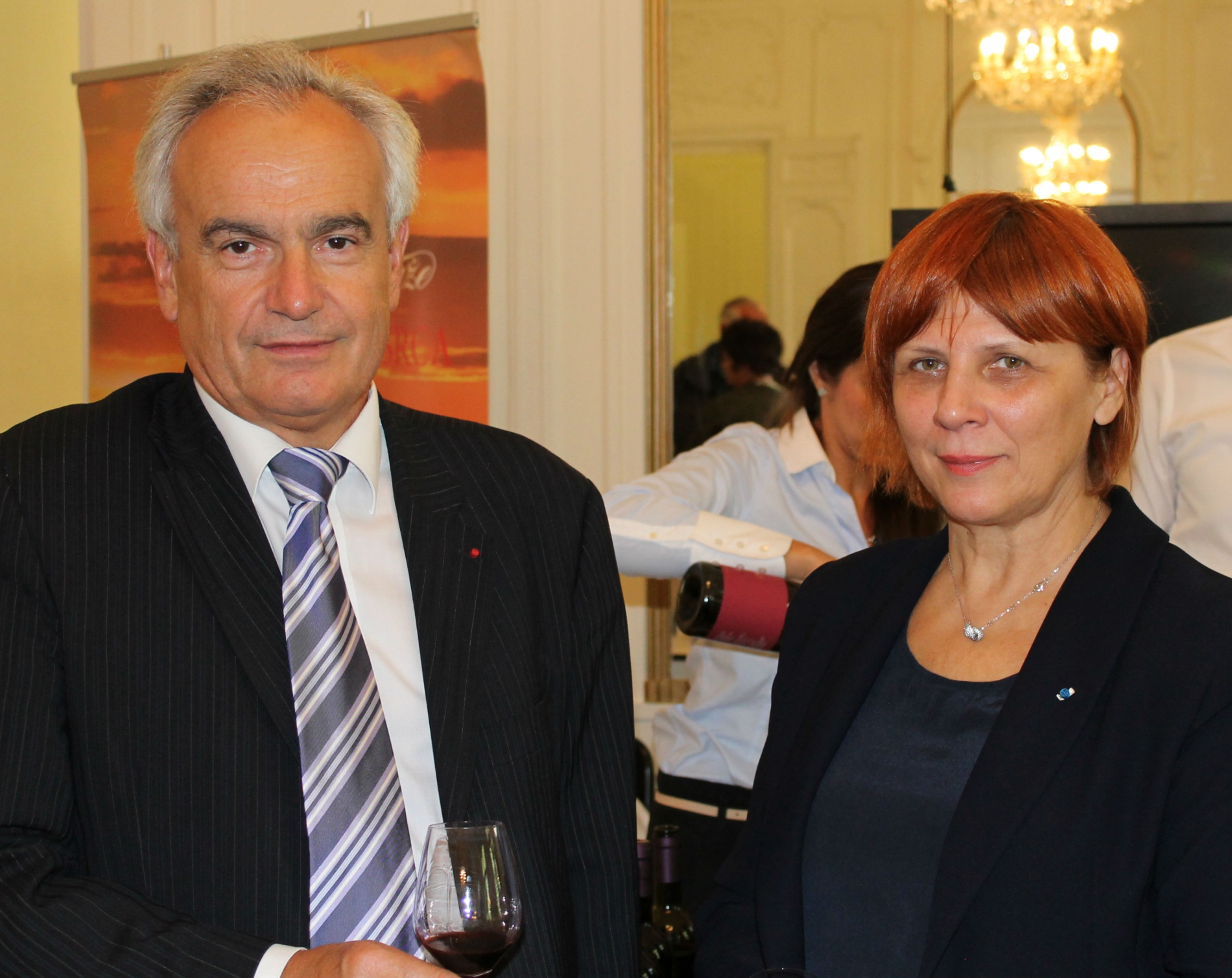
This presentation was organised by the wine company Jul Plantaze and the National Wine Growers’ Association, and involved eleven wine-producing companies.
Montenegro produces high-quality wines from native grape varieties such as Vranac (red) and Krstac (white).
With the Plantaze company, the country possesses the largest wine estate in Europe with more than 2300 ha of vines and 17 million bottles produced per year, of which much is exported worldwide.
A Member of the OIV since 2007, one year after the country’s independence, Montenegro is carrying out a proactive policy of modernisation and promotion of the vine and wine sector, involving in particular the development of wine tourism, the upgrading of its vine and wine heritage and the promotion of its terroirs.
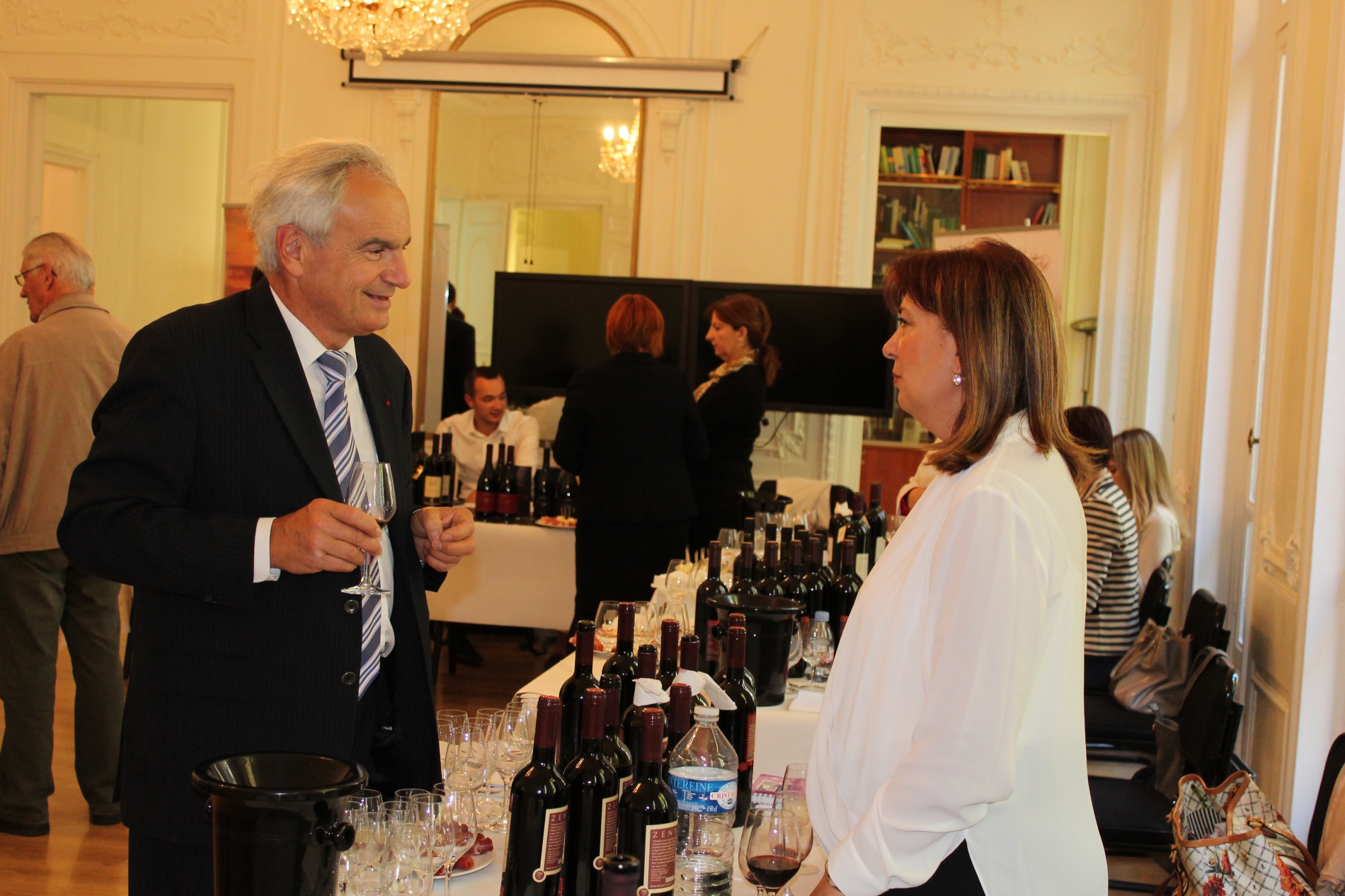
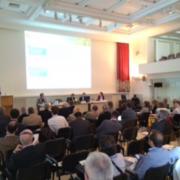
This speech in the context of a panel devoted to the harmonisation, mutual recognition and impact of the various bodies of international regulation governing the wine market outlined developments in wine law over the past thirty years.
This international meeting gathering brought together in Santorini, Greece, a hundred or so jurists from 20 countries, on the occasion of the 30th anniversary of the founding of the A.I.D.V – I.W.L.A ., to discuss legal topics connected with the introduction of new technologies, the protection of geographical indications, the protection of vine varieties, international trade conflicts, counterfeiting and Internet, planting authorisations and the law governing successions.
At this meeting, the President of the A.I.D.V – I.W.L.A ., Rein-Jan Prins presented members with the results of an international survey among the membership, which showed the vitality of the Association and the importance of this network with its 300 jurists in some thirty countries. A special role to which Jean-Marie Aurand drew attention, while expressing pleasure at the activity of this organisation with observer status in the OIV and stressing that the vine and wine sector was unique in benefiting from a worldwide network of specialised jurists.
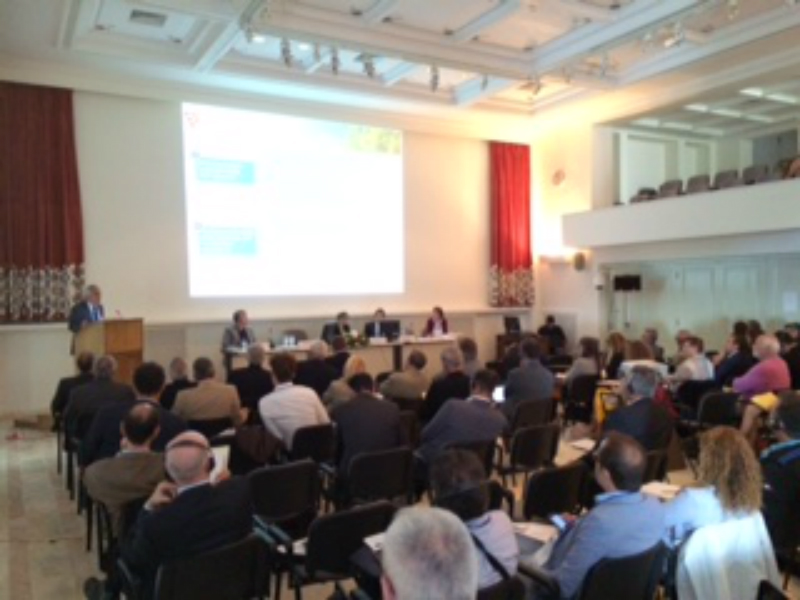

In the course of a working meeting attended by, inter alia, Ms Chrysoula Papadimitriou, Director for Rural Development and Food, Ms Evangelina Komenta, delegate to the OIV, Mr Yannis Voyatzis, President of the National Inter-Professional Organisation for Vines and Wine and Mr Theodore Georgopoulos, Director of the Greek Wine Federation, the Secretary-General spoke of Greece’s contribution to the work of the OIV (of which Greece has been a member since 1929) and confirmed the country’s unstinting support for the Organisation. He went on to speak of Greece’s firm intention to develop its viticulture by upgrading wines produced from native varieties, which are part of Greece’s historical heritage.
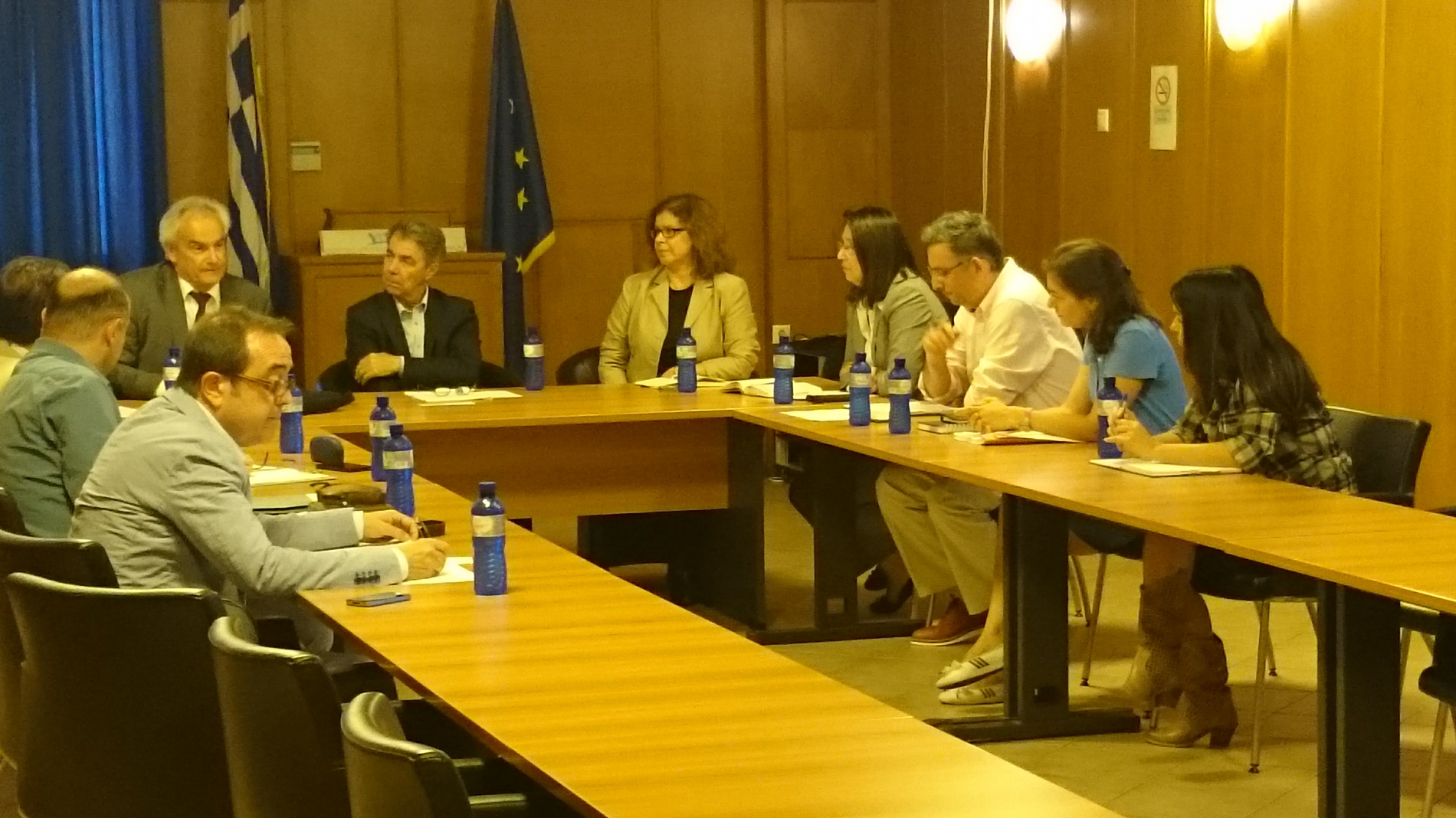
Mr Jean-Marie Aurand gave a presentation of the OIV’s Strategic Plan and expressed his pleasure at the active presence of Greek experts in the organisation and the delegation’s contribution to the decision-making process.
He drew attention to the importance the OIV attaches to maintaining the diversity of vine and wine production and improving and upgrading native varietal wines by means of the research and development programmes now being carried out in many countries.
With 110 000 hectares planted to vines, Greece produces some 3 million hectolitres of wine under highly varied soil and climatic conditions.
A land with a millenary wine tradition, Greece has succeeded in building up a modern viticulture sector with international vine varieties while at the same time continuing, from among nearly 300 local varieties, to produce unique wines based on Assyrtiko, Moschofilero, Agiorgitiko or Xinomavro grapes. It is also the land of the Cretan diet, based on cereals, olive oil, vegetables and world-renowned wines.


Following an introduction to the OIV and its activities by the various heads of unit, they were received by Director General Jean-Marie Aurand who stressed the original character of this training and the openings to which it gives rise, thanks to the network of universities and companies associated with it.
This diploma is unique in that its field of study is at one and the same time single-sector, multidisciplinary, itinerant, international and experimental, while drawing on one of today’s most highly developed networks in the wine world. Since 1987, more than 500 “movers and shakers” in the wine world have received this training.
Before the members of this class left OIV headquarters, Jean-Marie Aurand insisted on the international dimension of a course which every year enables students to discover more than 20 key countries in Planet Wine, situated on 5 continents.
